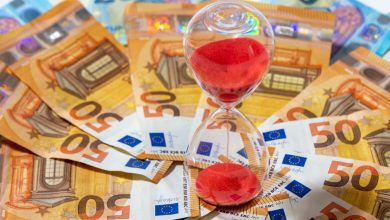Information on Trial
Article published on TCS on April 15, 2005.
The UIPP (French Crop Protection Association) recently launched an advertising campaign outlining the benefits of pesticides. Accused by environmental groups of spreading misinformation, this grouping of French pesticide manufacturers was summoned to court in Rennes on 9 March 2005. Now it will have to prove its innocence. Why is the information in its campaign considered to be untrue? Because, simply, it contradicts what environmental protection groups have been shouting from the rooftops.
For environmentalists, pesticides are not only socially unacceptable but are also a health risk with no real use. Therefore banning them would bring only positive effects. It is hard to be shocked by such arguments, given that we hear them continually in the debate on chemicals.
What these groups neglect to tell us is that insecticides also have a positive effect on health and the environment. Indeed, many of the insecticides used on lawns, golf courses and farmland are also used to fight termites, rodents in restaurants, fleas and tics on pets, algae in swimming pools and fungi such as mildew in paint.
For millions of Africans and Indians, pesticides are an effective way of preserving crops, which would otherwise be killed by each new invasion of insects. More serious still, malaria epidemics are responsible for the deaths of 1 to 2.5 million Africans every year, a humanitarian disaster which could be avoided if DDT had not been banned.
The positive effects of DDT were discovered by Paul Müller. For his contribution to the eradication of a major worldwide cause of death, he won the Nobel Prize for Medicine in 1948. Nevertheless, this did not prevent this insecticide from being banned under pressure from environmental groups.
Be it pesticides, GMOs, or the Kyoto protocol, the story we are told seems to be the same every time: to protect ourselves against serious and irreversible damage, it is necessary to ban this activity or that production. Do millions of deaths and crops destroyed by insects not also constitute serious and irreversible damage?
The problem with many environmental groups is that they make the same mistake that they accuse their opponents of, namely they invite us to ignore certain environmental risks in the name of the environmental cause.
Pesticides can contribute to the health and security of a great number of people. This point is not often made. In this context, an advertising campaign for pesticides seems more than beneficial. It is important, if we want consumers to make well-informed choices, to have access to as many different sources of information as possible. Advertising has a role to play in such an information process, allowing the individual to weigh up the advantages and disadvantages of his choices.
There is a persistent idea that consumers would be helpless when faced with the pressure that advertising represents. They simply wouldn’t be able to resist it. This argument sees the power of advertising to be such that it alone can explain a company’s success. Yet nobody believes today that candle producers could have, thanks to advertising, held their own against electricity in the battle for market share. Advertising tricks are available to sellers of the best products as well as sellers of mediocre ones. Nonetheless, only the former will have the advantage of better quality.
This is why, in the same way that environmental groups are entitled to only talk about the negative effects of pesticides, it is crucial to allow industrialists, who produce pesticides, to talk about their positive effects. The only thing they can do is to try to convince the consumers.
By taking the UIPP to court, environmental groups undermine the principle of freedom of speech and make the mistake of refusing other groups a right that they recognize for themselves. They risk being the next ones to find themselves on trial for misinformation.
The author is Director of the Molinari Economic Institute





